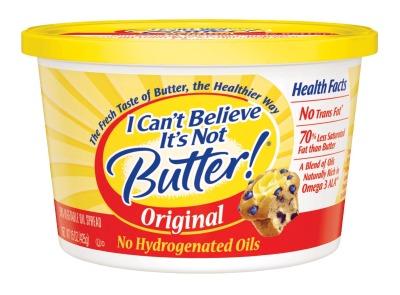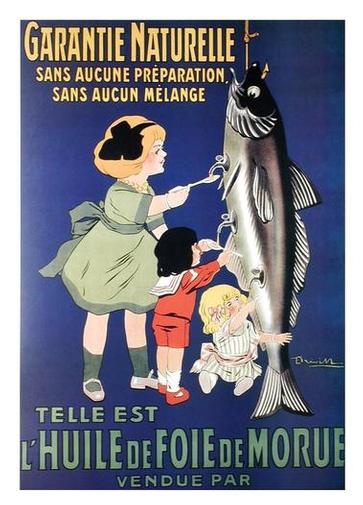Lone Wolf wrote:
Gumby wrote:
I just put my three year old toddler on their Cod Liver Oil and Butter Oil mixture three weeks ago. He always had some minor sensory and anxiety issues and has always been an extremely picky eater. It's been three weeks since I started putting the oils into his smoothies and his brain really calmed down a lot. He's able to think things through now and sleeping a lot better — even during mid-day naps. It's like a totally different kid. His brain was apparently starving for saturated fats and omega 3s (which are apparently important for brain development). We just added whole milk back into his diet as well. Normally I would be afraid to try something like this on my child, but I don't see this as a fad. This is what kids used to have before modern vitamins were invented.
Gumby, what guidelines did you follow for omega-3 dosages for your little one?
Congratulations on having so much success so quickly with this regimen!
I just used the basic guidelines here:
http://www.westonaprice.org/cod-liver-o ... oil-basics
It's a little confusing, but the general idea is that each day a toddler would take 1/2 a teaspoon (2.5mL) of
Fermented Cod Liver Oil and 1/4 teaspoon (1.23mL) of High Vitamin Butter Oil. An adult would take 1 teaspoon of
Fermented Cod Liver Oil and 1/2 teaspoon of High Vitamin Butter Oil. There are some exceptions, as pregnant or nursing mothers get different amounts. And if someone is sick, or under the weather, you can give a little extra.
And, there are a few things you should know...
1) Weston Price believed that the combination of butter oil and fermented cod liver oil were essential — each making the other more powerful, healing and safe for the body.
2) The Weston Price Foundation certainly has its critics. They do not follow the recommendations of mainstream doctors, and they are proud of it. You can read about their mission here:
http://www.westonaprice.org/about-the-f ... foundation
Some people call them quacks. But, I'm not so sure. Dr. Price did a lot of digging into the historical record and indigenous cultures to see why those populations were so healthy (and why our modern society has wreaked so much havoc on our bodies) and the foundation's mission is to continue that work. In any case, their recommendations for cod liver oil — which they claim is one of the most important supplements you can take — are pretty tame compared to some of their other recommendations (such as adding lard, tallow, butter and cream in your diet).
3) Cod liver oil will thin your blood. Proponents of cod liver oil has been known to replace their statins with cod liver oil. Some doctors may be uneasy with this, so if this is something you want to do, it's best to find a doctor who is willing to work with you towards this goal. It is not recommended to take statins AND cod liver oil at the same time — that would probably be bad. Also, I believe one should stop taking cod liver oil a few days before any surgeries so that your blood isn't so thin.
4) Weston Price followers don't believe that cholesterol levels are something most people need to worry about (unless your total cholesterol is over 1100 or something). While this sounds crazy (and maybe it is) they say that cholesterol is something the body secretes to protect and heal itself. So, they say blaming cholesterol for heart attacks and heart disease is like blaming fires on firefighters: as in... mainstream science notices that firefighters are always around whenever a house burns down...therefore mainstream science has concluded that firefighters must be causing all these fires. In other words, cholesterol may really be indicative of another problem in the body and lowering your cholesterol may actually make things worse (since you are lowering your body's natural defenses). You don't have to believe any of this to understand the benefits of cod liver oil, but I point it out in case you do (ever) have high cholesterol, you may decide its worth it to take fermented cod liver oil rather than to be forced on to statins like everyone else. I believe many Naturopaths tend to recommend cod liver oil rather than pharmaceuticals and supplements for most people. I've seen newsletters from pediatric Naturopaths that want all their patients on fermented cod liver oil.
5) Fermented cod liver oil is different than mass-produced cod liver oil. Many people believe that fermented cod liver oil is better for you — and it's how it was made for centuries before modern machines came into existence. I believe it is more potent than regular mass-produced cod liver oil. However....
6) ...It really doesn't taste very good. This is likely why people stopped taking cod liver oil. Imagine you're a parent during the 1940s and you see an advertisement for modern vitamins: "Vitamins have no yucky taste and are easy to swallow!" So, pills beat cod liver oil in a taste test any day. But, Green Pasture sells some flavored cod liver oil and after three weeks of downing it... you don't really notice the taste after awhile. My toddler actually seems like the taste of it in his smoothie squeeze packet — which is pretty odd considering he is so picky.
7) It's very gooey. That makes it difficult to give to a toddler. I went to Walmart and asked the pharmacist for some free syringes (they have them in a box behind the counter). This allows me to stuff it into a syringe, with a toothpick, the night before and leave the syringe sitting it in a glass in the fridge overnight, and then squeeze it directly into his yogurt-smoothie squeeze packet in the morning and mixing it up within the packet. He doesn't notice it.
8.) Green Pasture makes an emulsified paste of the cod liver oil and butter oil blend, which makes dosing easy. But, you just have to remember that if you use the blend, you would need to use the total volume of the two oils as your dosage: so that would be 3/4 teaspoon of the fermented cod liver oil/butter oil blend for toddlers and 1 1/2 teaspoons of the blend for adults.
9) It's expensive. However, the justification is that you don't need any other supplements. In fact, the two oils have so many natural vitamins in them that you really shouldn't be taking any additional Vitamin A or D with them.
10) There is no nutrition label. Green Pasture would need to be under the regulation of the FDA if they had a detailed label. The people who take FCLO already know what they are taking, so the label barely says anything about what's inside it.
11) You may get a runny nose or sinus pressure or feel fogginess during the first few days of taking FCLO. This is normal. Some people say this is your body detoxifying. Whatever it is, it goes away after a few days and its not really a big deal. One way around this is probably to start with a lower dose and work your way up.
Hope that helps, but please feel free to ask any questions. I also recommend calling the fine folks at
Dr. Ron's and asking them for their opinions about any of this. They have relatively better prices on those products and are very knowledgeable.
Nothing I say should be construed as advice or expertise. I am only sharing opinions which may or may not be applicable in any given case.
 [/align]
[/align]

 [/align]
[/align]

 [/align]
[/align] [/align]
[/align] [/align]
[/align] [/align]
[/align]